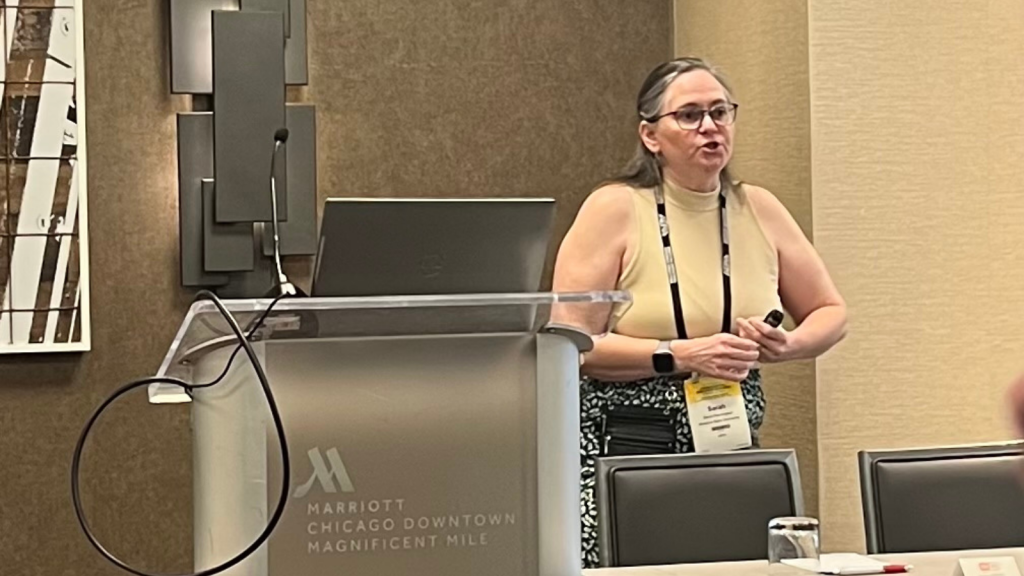For immediate release.
May 1, 2023
AMLE Presents Initial Findings from its Successful Middle School Research Project
Dr. Sarah Pennington attended last month’s American Educational Research Association (AERA) Annual Meeting, one of the world’s largest gatherings of education researchers and policymakers, to present the initial findings of AMLE’s Successful Middle School Research Project. Dr. Pennington, Associate Professor and Education Department Head at Montana State University, has headed up the AMLE initiative that aims to advance middle level education research utilizing data collected from schools around the world through AMLE’s Successful Middle School Assessment.
The Successful Middle School Assessment supports schools in measuring implementation of middle grades best practice through a series of research-based exemplars. In addition to staff, schools can also include students and families in their Assessment to gain community-wide picture of how they’re meeting the needs of young adolescents. The school receives a report with a comprehensive data analysis and actionable next steps to support their continued improvement, while their anonymized data also contributes to the research project.
In this initial phase of the project, Dr. Pennington and her team’s work centered on validating the Assessment as a reliable statistical tool for schools. “There was a lot of work to be done in terms of statistically assuring our community partners and the schools that are engaging with this that the work is valid and reliable,” Pennington said, “what we found was these tools are actually measuring what we intend for them to measure.”
According to Dr. Pennington, this validation opens an exciting new chapter in middle grades research. “This is the first time that we’ve had a tool that actually measures the characteristics of The Successful Middle School: This We Believe framework,” she explained, “That’s huge! For researchers, this is going to inform future work by providing a more nuanced understanding of how these characteristics work together and interrelate, as well as opportunities to examine the perceptions of different community groups to see where there are gaps and disconnects.”
Dr. Pennington also highlighted the benefit for schools beyond future research. “For school leaders, we can now say that we have a tool and it works,” Pennington said, “It can really be used to look at the perceptions of the community groups within their schools to show how the school is meeting the needs of young adolescents.”
With the validation work complete, the project moves into its next phase of drawing insights for the field as a whole. This will examine perceptions across community groups, the interconnectedness of the characteristics of successful middle schools, and identify qualitative research questions to further explore promising practices. Dr. Pennington is excited about the possibilities. “Middle school is my passion,” she said, “it is so under-understood. I’m not going to say misunderstood because we understand bits and pieces but we don’t really have the depth of understanding that we could have. This data set can contribute to that understanding. It took decades of research to create the Successful Middle School framework, and this gives us something concrete to see what that looks like statistically in the real world. That for me is just an absolute breakthrough.”
The Successful Middle School Research Project is supported by member donations to the AMLE Foundation Fund. Learn more about the AMLE Foundation Fund.
